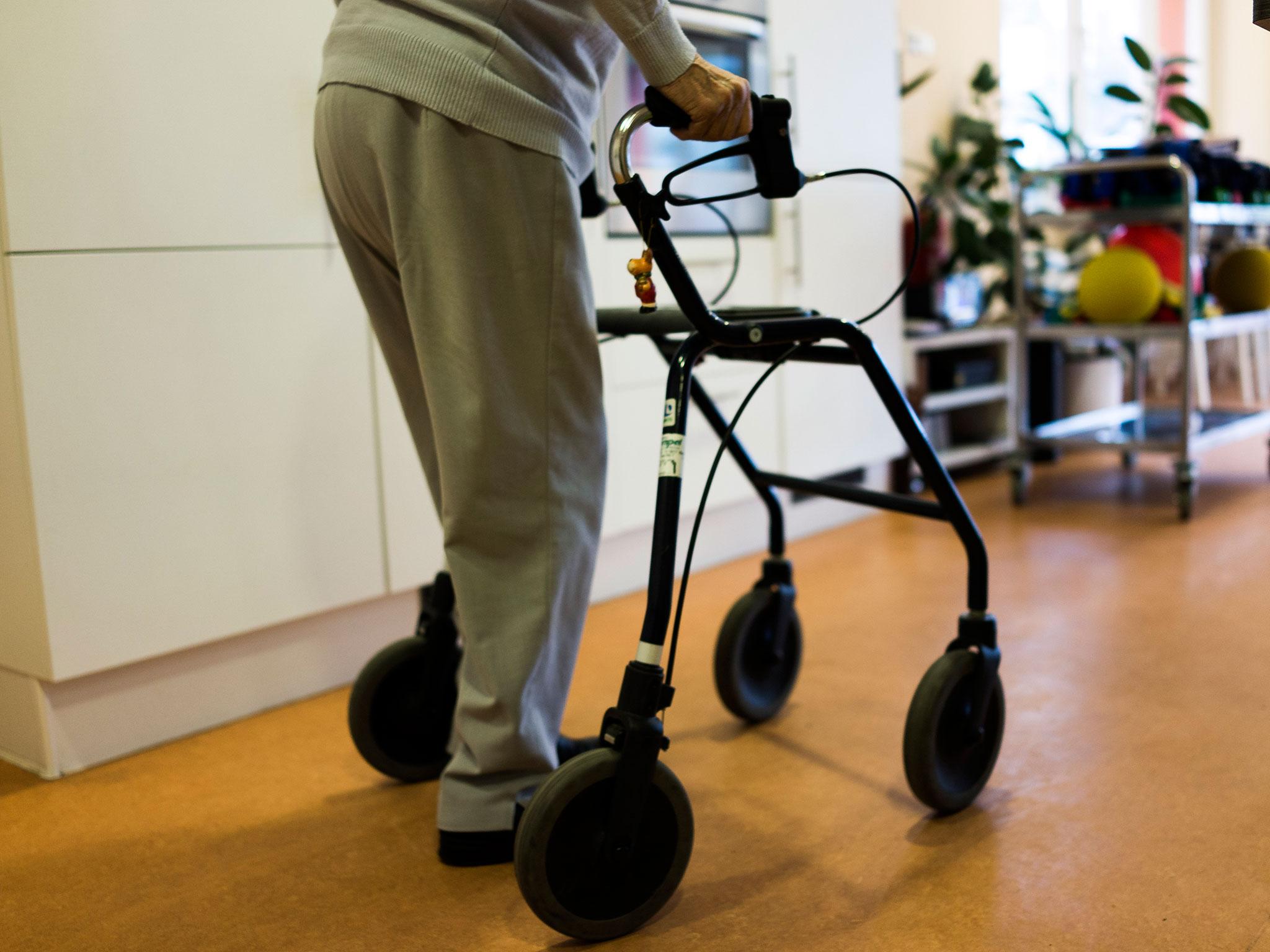Dementia patients left without painkillers and handcuffed to bed according to hospital care report
One family reported a patient being handcuffed by the police

Your support helps us to tell the story
From reproductive rights to climate change to Big Tech, The Independent is on the ground when the story is developing. Whether it's investigating the financials of Elon Musk's pro-Trump PAC or producing our latest documentary, 'The A Word', which shines a light on the American women fighting for reproductive rights, we know how important it is to parse out the facts from the messaging.
At such a critical moment in US history, we need reporters on the ground. Your donation allows us to keep sending journalists to speak to both sides of the story.
The Independent is trusted by Americans across the entire political spectrum. And unlike many other quality news outlets, we choose not to lock Americans out of our reporting and analysis with paywalls. We believe quality journalism should be available to everyone, paid for by those who can afford it.
Your support makes all the difference.Dementia patients experience a ‘shocking’ variation in the quality of hospital care they receive across England, a charity has warned.
Staff using excessive force and not giving dementia patients the correct pain medication were among the findings outlined in a new report by The Alzheimer’s Society, to coincide with the launch of Fix Dementia Care campaign.
The research based on Freedom of Information requests (FOI) and a survey of 570 people affected by dementia showed that as many as 92 per cent of dementia patients found hospitals frightening, according to the survey.
A showed further 57 per cent of patients felt they were not treated with dignity or understanding.
The report includes an account of how a 64-year-old man with dementia identified as David was admitted to hospital due to a mouth abscess. During his stay he became aggressive because of the pain he was experiencing.
When they arrived to collect him, his family were "shocked" two find police vans had arrived to remove him from the hospital after an officer handcuffed him to a bed. A nurse told his daughter-in-law Jill that he had pushed over a piece of hospital equipment and could be charged with criminal damage.
“I was appalled. My father is a sick man but they were treating him like a criminal. It was ridiculous,” she said.
Patients were also left alone on wards or busy Accident and Emergency departments for hours; left in soiled sheets and denied visits from family carers, the report read.
Hospitals were also found to not provide patients with water in a way that they could drink, or help patients to eat or choose their meals.
The report also drew attention to 4,926 people with dementia who were inappropriately discharged at night between the hours of 11pm and 6am across the 68 trusts that responded to the FOI request. Only six did not.
Sending a patient with dementia home at night is considered unsafe and disorientating as they are unlikely to receive the support they need in care homes which are often closed during these hours.
The charity has also highlighted that on average people with dementia spend nearly four times as long in hospital following a fall than others – with 702 people falling in one hospital in 2014.
On top of this, 28 per cent of people aged 65 over who fell in hospital had dementia; however, this figure was as high as 71 per cent in the worst performing hospital trust, the Alzheimer’s Society investigation revealed.
The charity emphasised that dementia patients use a quarter of hospital beds, and an estimated £264.2 million of public money was wasted on poor dementia care according to the latest statistics.
In addition, £155.3million was spent on excess days in hospital, £15.9million on falls, and £93million on emergency readmissions.
In light of the report, the charity has recommended that all hospitals publish an annual statement of dementia care including patient feedback.
Describing the findings as “shocking”, the charity said in a statement: “Too many people with dementia are falling while in hospital, being discharged at night or being marooned in hospital despite their medical treatment having finished."
Jeremy Hughes, Chief Executive of Alzheimer’s Society, said: “Poor care can have devastating, life-changing consequences. Starving because you can’t communicate to hospital staff that you are hungry, or falling and breaking a hip because you’re confused and no-one’s around to help, can affect whether you stand any chance of returning to your own home or not.
Dementia is an umbrella term for conditions which can include memory loss and difficulties thinking, with Alzheimer’s being the most common form.
Symptoms include memory loss which becomes progressively worse, as well as difficulties with: language, visuospatial skills, concentrating, and orientation. Mood swings are also common in the early stages of the disease.
Responding to the report, a Department of Health spokesman said that £50m has been spent in recent years on making hospitals and care homes more “dementia friendly”, and that 500,000 staff had received extra training.
“People with dementia and their carers deserve the very best support,” the spokesman said.
NHS England said: “There have in fact been major advances in recognising and assessing symptoms of possible dementia in patients admitted to hospital, with more than four fifths of trusts meeting a challenging 90% target.
“And following the Prime Minister's Challenge work to increase the diagnosis rate 67.2 per cent of people with dementia now have a diagnosis - an increase from 52 per cent in March 2014 - helping many more people to access post-diagnostic support.”
Join our commenting forum
Join thought-provoking conversations, follow other Independent readers and see their replies
Comments